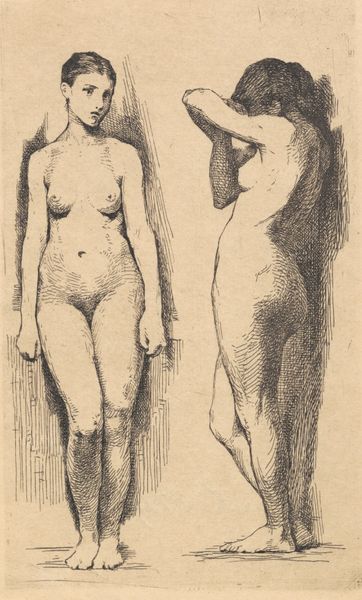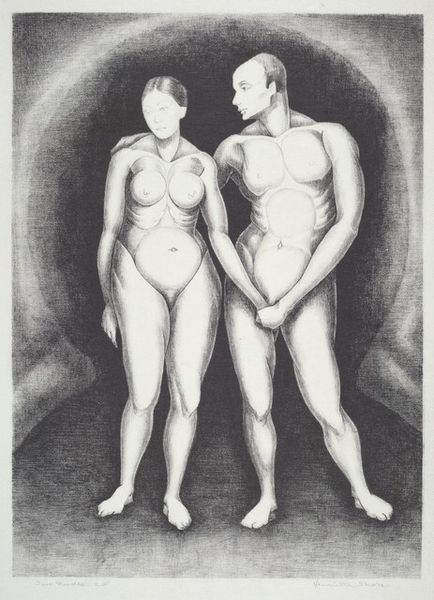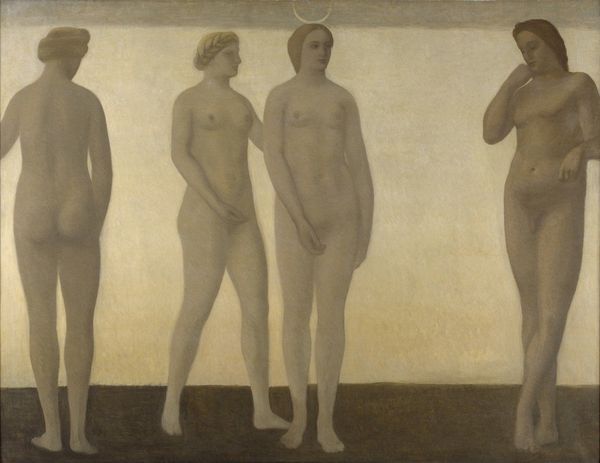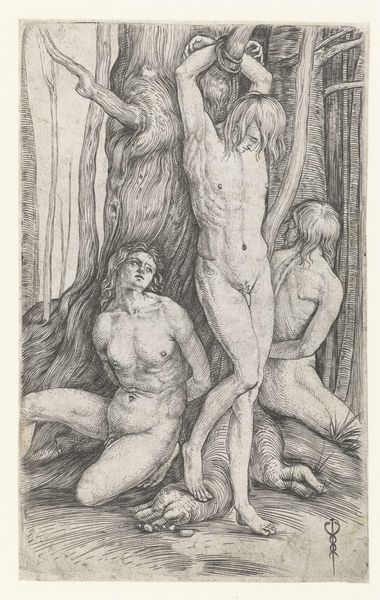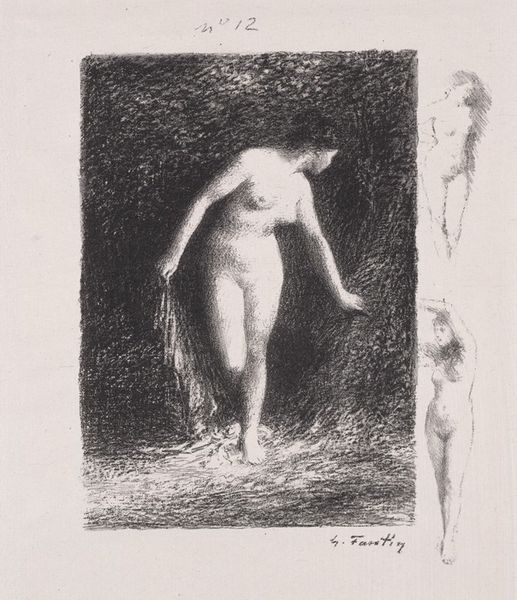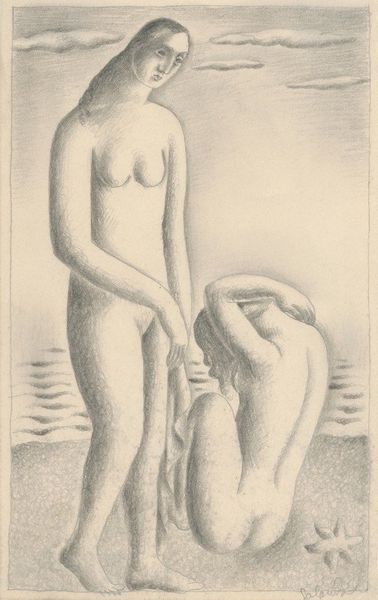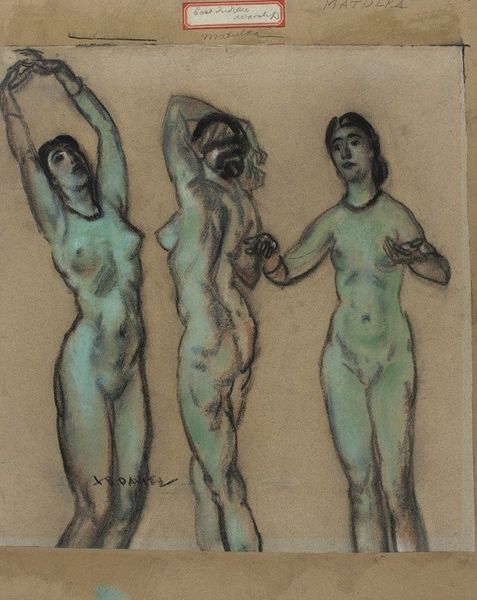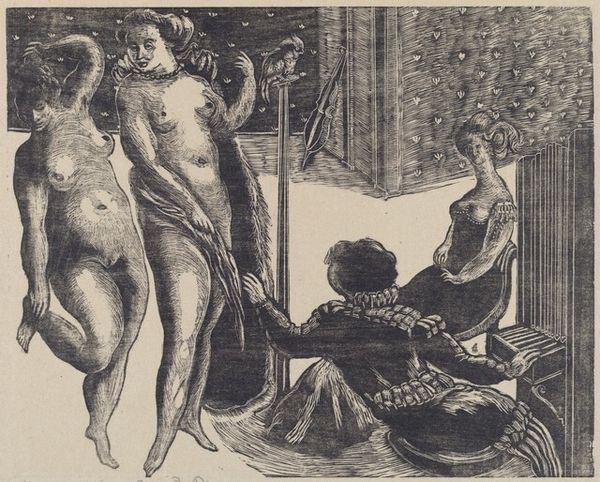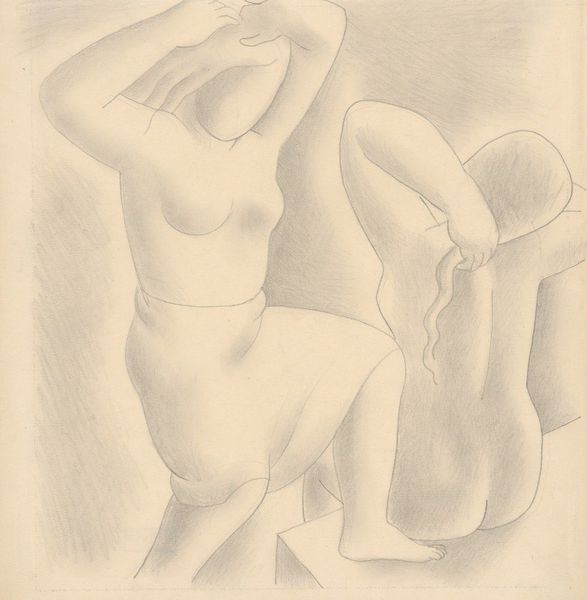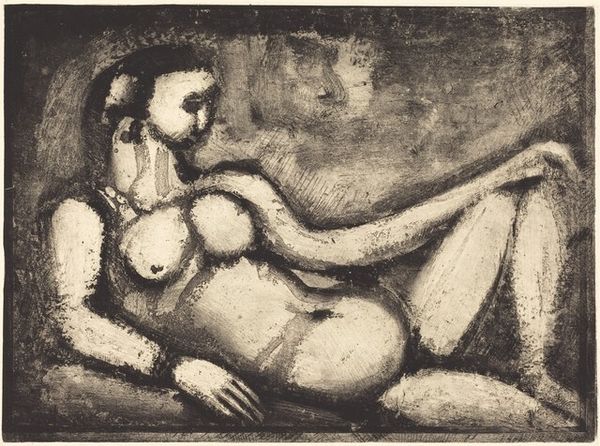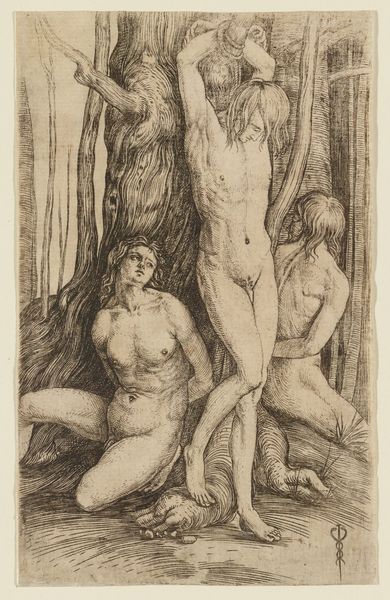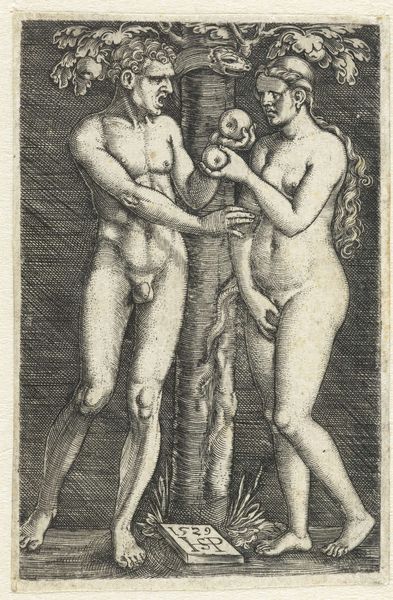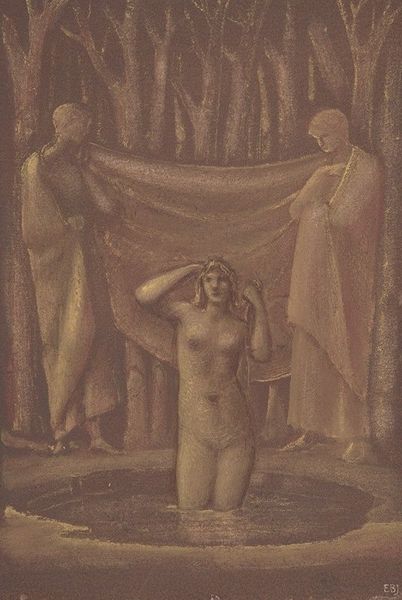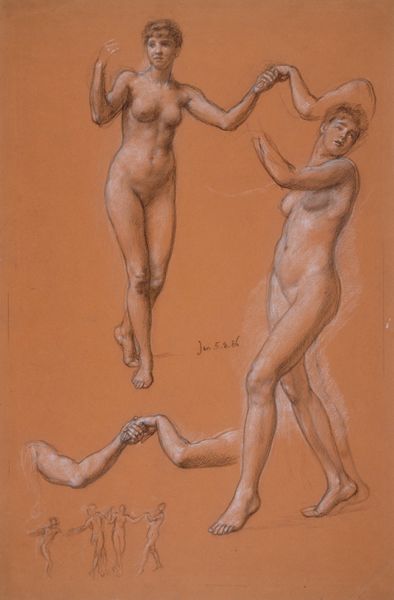
Copyright: Public Domain: Artvee
Editor: Okay, I’m looking at this, and I just feel… unease? Like I’ve stumbled into someone else's dream, and it's not a very happy one. What's the story here? Curator: The artwork you’re observing is a drawing entitled “Eifersucht,” German for “Jealousy.” Created by Karl Wiener in 1940, the piece uses charcoal and pencil to depict its subject matter, casting it into a symbolist style, which may explain why you feel that way. It does strike a nerve with a lot of viewers. Editor: Jealousy… Okay, I see it now. The couple in the foreground, holding hands, and then that solitary figure fading into the background under the cold moon. It’s so stark, like a scene stripped bare of all pretense. Curator: The figuration of nude forms plays a crucial role here. They’re vulnerable, exposed, suggesting a raw emotional state. Consider, too, the sociopolitical climate in 1940. Wiener, an Austrian artist, was creating this work during a time of immense turmoil and persecution, fleeing Nazi occupied territory. Jealousy then perhaps moves beyond a personal relationship. Editor: So you're suggesting it might represent a loss of place, a yearning for what was, with that lone figure representing what's been left behind? Curator: Precisely. The male figure’s downcast gaze is particularly compelling when read within the broader context of forced displacement and collective trauma. And the woman gestures almost possessively, not to share but to enclose. It echoes patriarchal possession in the face of potential lack, both materially and metaphorically. Editor: I can see that. There's a tension between intimacy and exclusion—between the safety of connection and the despair of being cast out. And the artist uses the monochromatic palette to enhance this melancholic sentiment, no frills, just the bare essence of human emotion. Curator: Yes, the absence of color amplifies the emotional weight. The stark contrast highlights the fragility of relationships, of belonging, particularly when under duress. Also consider that in a moment like this in the context of conflict or fleeing there is not a lot of control to be had, so one grapples more ferociously with whatever might remain. Editor: It’s powerful how art can take these abstract feelings and give them such a palpable form, you know? Makes you realize jealousy isn’t just a petty feeling; it can be a sign of much deeper loss, like a symptom of cultural and personal upheaval. Curator: Exactly. By situating "Eifersucht" within its historical and sociopolitical context, we gain a deeper understanding of its complexity and enduring relevance, offering critical insights into themes of displacement, identity, and power dynamics that resonate profoundly even today. Editor: Thanks for shedding some light on that. I walked into a stranger's nightmare but I think I get it now. Curator: Likewise. It's the emotional grit that leaves its trace in us that is always most memorable, wouldn't you agree?
Comments
No comments
Be the first to comment and join the conversation on the ultimate creative platform.
